Ecology and Conservation
with a Year in Professional Practice
Gain knowledge and skills in conservation and ecology, so you can make a real difference.
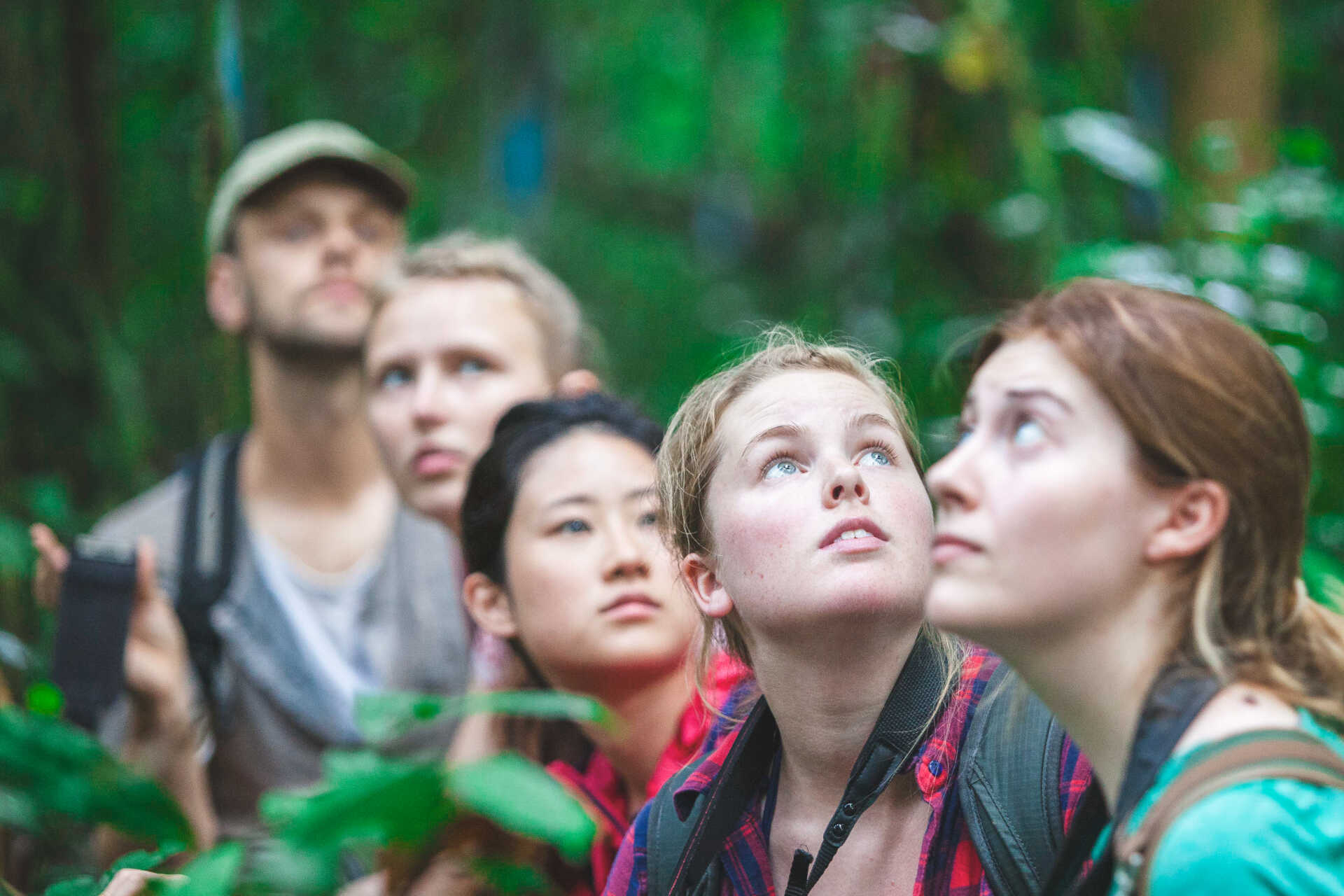
Gain knowledge and skills in conservation and ecology, so you can make a real difference.
Join the longest running undergraduate conservation course in the UK. Our degree equips future ecology and conservation professionals.
Natural science areas of focus include ecology, wildlife survey methods, rewilding, wildlife management, conservation biology, biogeography, and conservation genetics, and include an emphasis on field-trips with some lab-based training too.
Explore the human dimensions of conservation including climate change, environmental sustainability, species reintroduction, working with rural communities, human-wildlife conflict and conservation policy, so upon graduation, you can make a real difference in tomorrow’s world.
Graduate with skills in wildlife and habitat surveying, data analysis, survey design, Geographical Information Systems (GIS), and ecological project management - having planned your own dissertation research project in the final year. Become part of the Durrell Institute of Conservation and Ecology (DICE), an award-winning research centre. You’ll be taught by award-winning DICE staff, giving you the knowledge, skills and global networks to address modern environmental challenges.
Our extensive range of UK and overseas field trips take advantage of the UK’s rich landscapes, our beautiful green campus, and you could even venture to the forests and beaches of Costa Rica on our tropical field course. Kent is now an epicentre of rewilding efforts in the UK, and we take advantage of our proximity to reintroduction projects including the Bison in Blean woods, just a stones throw from the University of Kent.
The year in professional practice gives you the opportunity to spend up to a year undertaking work placements with organisations relevant to your degree programme. Placements can be at home or abroad and give you the opportunity to apply your academic skills in a practical context, offering you rare and unique experiences which will set you apart.
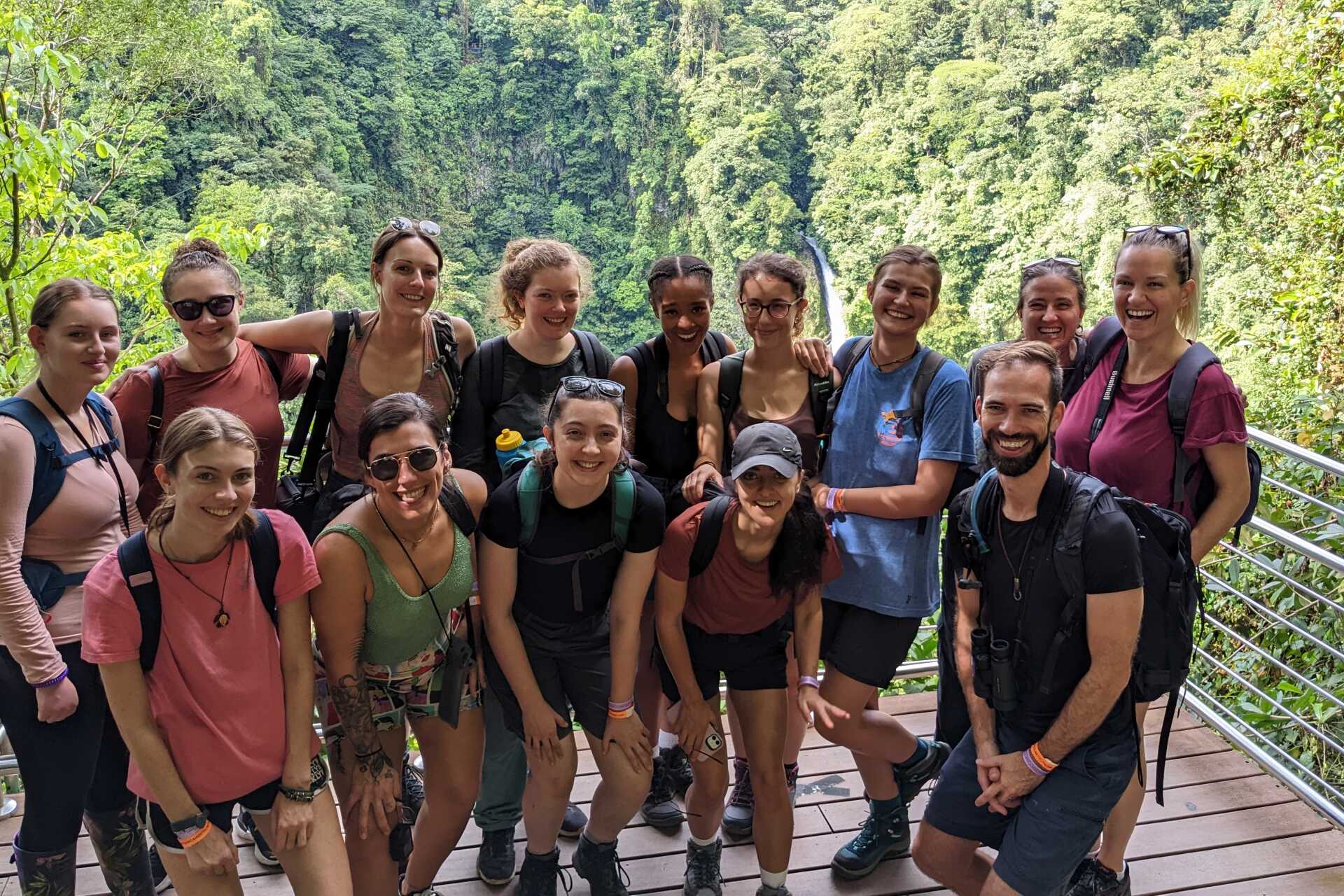
Experience a thought-provoking mix of teaching methods, including field visits, lectures, small seminar groups and laboratory sessions.
Ecology and Conservation student, Lilli, writes about the field trip of a lifetime in Costa Rica.
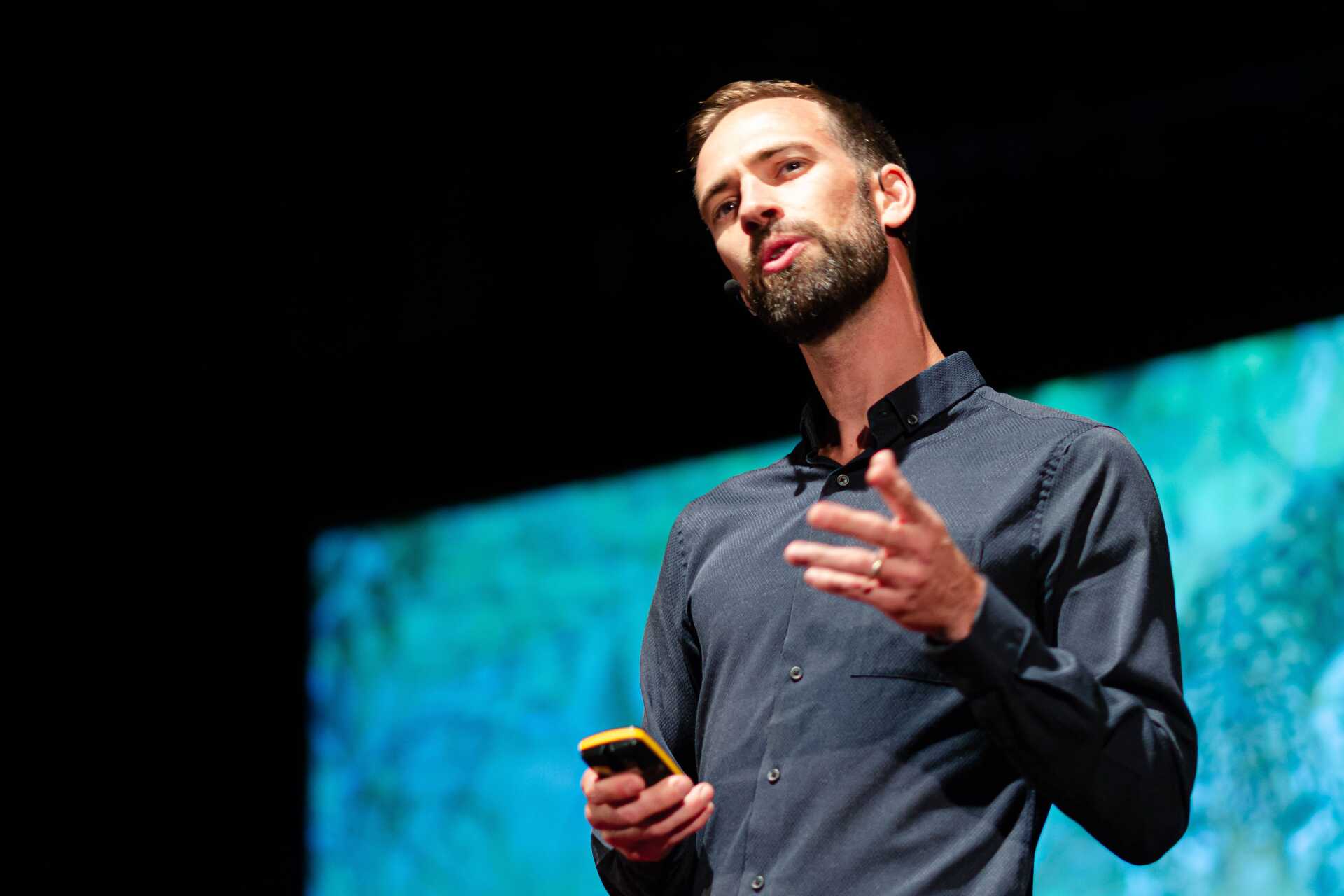
Geography and Environmental Studies at Kent was ranked 1st in the UK for research output in the Times Higher Education (REF 2021).
Many of our students gain high-quality work experience in exciting conservation placements all over the world.
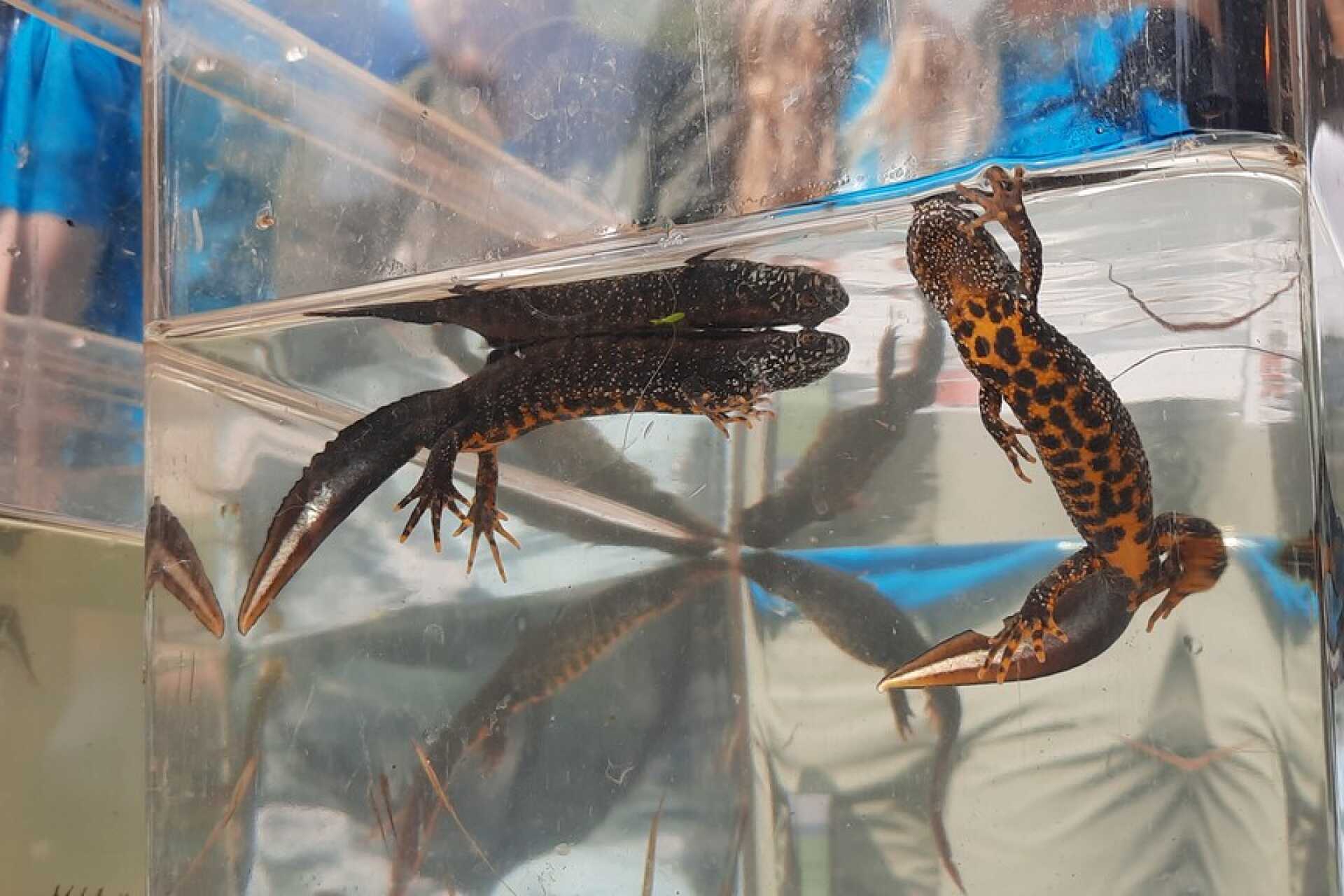
Use our very own on-campus field ecology site, modern genetics labs and an Ecology lab for your research.
The University will consider applications from students offering a wide range of qualifications. Click below to find out more. Please also see our general entry requirements.
BBB including one of Biology, Geography, Chemistry, Environmental Science, Psychology, Geology, Physics, Maths or any Joint Science at grade B or above.
Distinction, Distinction, Merit in Countryside Management, Animal Management or Applied Science. Other subjects will be considered on a case-by-case basis
120 Tariff points from your IB Diploma, Typically H5, H6, H6 or equivalent.
Mathematics grade C / 4
Pass the University of Kent International Foundation Programme.
The University will consider applicants holding T level qualifications in subjects closely aligned to the course.
Obtain Access to HE Diploma with 45 Credits at level 3 with 24 credits at Distinction and 21 credits at Merit.
The following modules are what students typically study, but this may change year to year in response to new developments and innovations.
We are entering a period of immense environmental upheaval. This module will introduce a range of fundamental concepts that underpin our understanding of biodiversity and, therefore, the conservation of biodiversity and associated ecosystem services.
You’ll consider the differences and similarities between the multiple definitions for the term ‘biodiversity’ and examine how scientists are trying to assess the magnitude of biodiversity on the planet. You’ll investigate spatial and temporal patterns of biodiversity, including how past geophysical processes have shaped biodiversity as we see it distributed across biomes today. You’ll discuss the importance of biodiversity (both use and non-values) such as the global carbon cycle, how it links to biodiversity and ecosystem service provision.
You’ll then explore contemporary threats to biodiversity and the provision of associated ecosystem services, together with a broad overview of the methods conservationists use to protect and maintain biodiversity. This grounding in biodiversity is essential if you want to forge a career dedicated to conservation.
The environmental crisis we currently face - which results from human activities - is profoundly entangled with biological, ecological, geographical and geological processes. To make a difference, you need to engage with the issues and debates surrounding the Anthropocene such as the speed, scope and scale of human activities on the earth as a system. Further, you’ll look at the multi-dimensionality of the Anthropocene including environmental, social, political, and cultural issues.
A multidisciplinary approach is needed to understand and develop solutions for the current environmental crisis. We’ll therefore investigate fundamental skill sets that academics need to engage with other academics and society as a whole. These include skills such as data collection and analysis, accessing and critically reviewing literature, and presenting evidence in multiple formats (such as written, oral and visual). These skills are not only needed for academic careers, but for any career where you'll be hoping to raise awareness and have an impact in fighting the climate crisis.
How can we make sense of the relationships between plants, animals and their environment (ecology) and the geographical patterns of biological diversity around the world (biogeography)? This module explores this relationship by drawing on physical geography, evolutionary biology and reproductive biology to help understand how individuals, populations and communities are distributed, and how these organisms interact with their physical environment.
You'll begin by examining how the physiology and reproductive biology of plants have shaped the variety of habitats, ecosystems and biomes we see in the natural world. You’ll explore how these geographical patterns have been affected by both historical and current factors. You’ll get hands on, with practical classes and field work to study essential concepts in population ecology, community ecology and island biogeography.
By the end of this module, you'll develop the foundational knowledge you need to help you understand how biogeographical and ecological principles inform global conservation strategies, and you’ll get an insight into how to manage threats to biodiversity from climate change.
We are living in the Anthropocene: an era where human activity has become the key driver of planetary changes. This module provides a comprehensive introduction to environmental sustainability, building on the planetary boundary concept to discuss the environmental limits that human beings can safely live within.
Using a strongly interdisciplinary approach based on human and environmental geography, we’ll discuss key environmental challenges including climate change, food systems, biodiversity loss, and pollution, among others. We’ll explore contemporary debates around sustainable development and critically analyse these in the context of real-world issues and relevant policy and governance considerations.
You’ll examine case studies that illustrate the way human-environment relations are shaped by complex social, economic and political processes at different scales. And through this, you will learn how you can make an impact on the drive towards sustainability.
Now is your opportunity to put your skills and experience to the test through practical fieldwork. This module introduces you to a range of standard field techniques and help you develop skills in collecting, analysing and presenting field data. You’ll get experience in using ecological survey techniques including biodiversity monitoring and assessment methods.
The module is spread over the term, allowing you to examine different groups of organisms as they become available for survey, meaning the dates may vary slightly from year to year. You’ll undertake survey or monitoring projects in groups under the supervision of a member of staff.
Each project will assess the biodiversity of an appropriate taxonomic group (such as birds, amphibians, mammals or plants). You’ll carry out a range of surveys, analyse the data and write up your results.
How can we evaluate geographical patterns and processes occurring within urban and rural systems? Learning through introductory lectures and seminars, you’ll develop your understanding of the dynamics of urban and rural change and the underlying economic, social, cultural and environmental processes that drive their geographical expression.
Your teaching will consider how social-spatial processes in urban and rural environments can be interpreted and assessed in light of different values and priorities. The module also considers wider questions of environmental sustainability, social justice and economic prosperity.
Each section of the module provides the context for understanding these systems, which you’ll then investigate empirically through field-based observation, interpretation and analysis. This allows you to explore many different systems and areas while developing your skills and knowledge more broadly.
Discover the ways in which ecological science can be applied to solve some of the crucial conservation problems facing the world today. You'll consider key ecological principles at the population, community and ecosystem levels, investigating how these principles can help guide management and policy decision-making. A major theme is how natural resources can be managed and exploited sustainably, drawing on examples from agriculture, urbanisation and forestry in temperate and tropical regions. Central to the topic is the question of how species and community conservation can be better incorporated into the wider needs of environmental management.
What topics, debates and controversies are shaping the field of conservation science today? Considering this question not only helps us understand the key issues in conservation but also helps develop conceptual and critical thinking.
Some of the topics you’ll critically evaluate include how to detect new threats to biodiversity, developing sustainable use strategies for over-exploited species, the pollinator crisis, the wildlife trade, the roles of zoos in conservation, conservation in the UK, hunting and defaunation, the impact of emerging infectious diseases, and the impacts of food production on biodiversity.
Each week an exciting topic is introduced in the lecture and discussed in the interactive seminar later in the week. This allows you to explore lots of different areas in separate deep-dives, so you wont only gain specific knowledge, you'll develop skills that can be applied across many different fields - allowing you to be agile and effective in your career.
Geographic Information Systems (GIS) are increasingly being used in many disciplines, including geography, ecology and conservation, to help solve a wide range of real-world problems using spatial data. As these disciplines moves towards the analysis of large spatial datasets, employers often report shortages of relevant GIS skills among graduates.
This module will introduce the use of GIS as a means of solving spatial problems providing you with marketable skills relevant to research and commercial needs. You'll cover a range of methods for the collection, presentation and analysis of spatial data and hands-on training in the most commonly used GIS software.
In the first half of the module you’ll be introduced to the major concepts of GIS —data sources and methods of data acquisition—and you’ll learn how to create and transform maps. In the second half, you’ll cover more advanced GIS operations such as manipulation of spatial data, spatial analysis of vector and raster data, and remote sensing. No prior knowledge of GIS, statistics or programming is required as the module is designed for students from any discipline to make rapid progress in their understanding of GIS, so you can stand out to employers.
Through combined lecture/practicals using computer software, this module will provide you with a solid foundation in practical data analysis and interpretation. Introductory topics will include types of data, descriptive statistics such as measures of central tendency, frequency distributions, the normal distribution, variance (standard error, standard deviation), and how sample parameters and null hypotheses apply in real data. Inferential statistics include analysis of differences between two groups (e.g. t-tests and non-parametric equivalents), differences between multiple groups (ANOVA and non-parametric equivalents), variable relationships (correlation and regression), and variable associations (e.g. chi-squared test). The role of probability in data analysis will also be considered, as will its application to scientific questions.
Throughout, you will focus on the practical application of statistics, and when and how they are applied. You will be able link the theory presented with the practical sessions and data collection components. As part of this you will collect and analyse your own data. By the end of the module, you will have a knowledge of the underlying principles of statistics, be able to conduct statistical tests in statistical software, critically evaluate the results, and have a sound appreciation of the benefits and limitations of different statistical techniques.
Animals represent a significant portion of Earth's biodiversity. By studying different species and their interactions with each other, we can gain insights into the complexities of ecosystems and the interdependence of living organisms.
In this module, you’ll comprehensively explore animal life across evolutionary history, focusing on key elements of functional anatomy and physiology. Through comparative physiology and the study of form and function, you’ll examine the diverse physiological systems found in various animal species, gaining insights into their adaptations and variations to changing environments over time.
By exploring these relationships, you’ll understand how animals have evolved in different environments, what challenges current global issues pose to different species, and what they — and we — can do to ensure species continue to thrive.
Examine the way in which conservation and environmental activities are widely implemented in practice and on-the-ground, including by organisations for which conservation and the environment is not a primary focus. explore relevant regulatory and voluntary principles that govern the conservation actions of businesses and governments, alongside some of the more influential multilateral environmental policies. The pathways by which scientific evidence is synthesised and integrated into policy and practice will be illustrated using case studies. Consultation processes, as well as the role of government and non-government organisations in formulating and implementing policy and practice will be explored. You'll be better equipped to practice conservation and environmental protection when you graduate.
Plants allow life on Earth as we know it, providing food and oxygen for the entire biosphere. They also provide essential materials for us such as shelter, fibre, fuel and medicinal compounds. With the pressing environmental challenges we currently face — such as climate change, biodiversity loss, and issues around food security and sustainability — understanding plant biology has never been more critical.
You’ll learn about plant physiology, genetics, epigenetics, and metabolomics, gaining insights into the mechanisms driving plant growth and development, and their adaptation to the environments around them. You’ll incorporate the latest discoveries and technologies into your work, and develop the knowledge, skills and critical thinking you’ll need for a future career in a growing area of the life sciences sector.
By the end of the module, you will have deepened your understanding of plant biology and will be better equipped to apply it to the pressing global challenges we face.
If you want to stand out from other graduates in today’s highly competitive global job market, spending time in the workplace as part of your degree can be invaluable. Many students find that prospective employers are very interested in their professional practice experience.
During your placement, you work under the direction of a line manager within the host organisation, with additional support via a member of academic staff from the University. You work on one or more tasks agreed in advance; for example, a management plan, a policy report, consultation process, a piece of applied research, or development of a set of educational materials.
What could you do in a year?My year in industry couldn’t have gone better. I secured a role at IBM, working in their sports and entertainment department – it was perfect for meTom Tillin Find out more
This is your chance to conduct an independent and comprehensive research project under the guidance of a research supervisor, focusing on a topic within ecology, conservation, environmental science, or geography, aligned with your degree program and interests.
The opportunity to engage in personal research is an essential element of academic training in all disciplines, whether this be through desk-based study, practical fieldwork or laboratory work. The primary aim of the research project is to cultivate your proficiency in the organisation, analysis, and presentation of research. The approved investigation may be novel, i.e. one that has not previously been carried out, or it may repeat previously executed work for comparative or control purposes. It will typically involve some bespoke, project-specific training in practical skills, and will require you to generate research questions, hypotheses and/or theoretical frameworks for their project.
You could choose to involve the collection of new data or be based on existing information, and consider quantitative or qualitative analysis of results, depending on the discipline investigated. You will be expected to showcase your findings through a research seminar and a dissertation written in the form of a scientific paper - this acts as proof of your knowledge and skills, to help you stand out to employers.
We are entering a time of environmental upheaval. As such, conservationists and geographers must continually analyse relevant and topical issues in a broad, real-world context. This includes understanding contemporary research, critically evaluating its ecological, environmental and interdisciplinary basis, and using this information to inform effective solutions to key problems that are embedded in social, political and economic reality.
You’ll use and apply knowledge and skills gained throughout your degree during in-depth discussions of how current research programmes, fit into the wider conservation, geographical and environmental context. In addition, you’ll write up these evaluations as a series of ‘News and Views’ style commentary articles, as published in the top international journals such as Nature. This experience of operating in the way leading researchers and conservations do helps you make rapid progress and demonstrates your skills and knowledge to employers.
Tropical rainforests are the most biologically diverse habitats on Earth and the loss of rainforest is of tremendous conservation concern, both due to loss of diversity as well as its consequences for global warming. You’ll gain first-hand experience of ecological processes, biodiversity and conservation issues associated with humid tropical environments when you spend time in a field studies centre in a rainforest.
You’ll cover rainforest structure and defining characteristics of pristine and disturbed habitats, take practical training in ecological techniques and survey methods for a range of terrestrial taxonomic groups, consider interventions such as protected area management and local community issues and learn about anthropogenic factors affecting rainforests including, fragmentation, global warming and agriculture.
You’ll learn in a field studies centre at a rainforest location where there is an adequate infrastructure to ensure logistical support and health and safety conditions. You’ll spend time working in forest systems, and there will be an emphasis on practical training in ecological survey and assessment methods. Teaching on conservation will be integrated with short visits to surrounding sites to gain direct appreciation of the issues, problems and solutions surrounding rainforests and their wildlife. Participation in the module will be dependent on maintaining a clean disciplinary record during registration on the degree course prior to the module.
Our teaching is research-led as all our staff are active in their fields. In addition to lectures and seminars, we run laboratory-based practicals and field trips. You also have an opportunity to conduct a field-based research thesis in your final year. This gives you practical experience of developing a research proposal and research questions, finding appropriate methods, conducting research, analysing and interpreting results, writing up a full research project and giving an oral presentation, all with the support of a dedicated project supervisor.
We offer you the opportunity to conduct your research project either in the UK or abroad – for example, many students have taken part in the annual expedition to the Peruvian Amazon, one of the most biodiverse regions on Earth.
For a student studying full time, each academic year of the programme will comprise 1200 learning hours which include both direct contact hours and private study hours. The precise breakdown of hours will be subject dependent and will vary according to modules.
Methods of assessment will vary according to subject specialism and individual modules.
Please refer to the individual module details under Course Structure.
For course aims and learning outcomes please see the course specification.
The conservation and environmental sector is an expanding area for employment opportunities. Employers include ecological surveying, local, regional and national government departments, conservation organisations and the private sector, as well as international conservation and environmental organisations.
Our recent graduates have found work as:
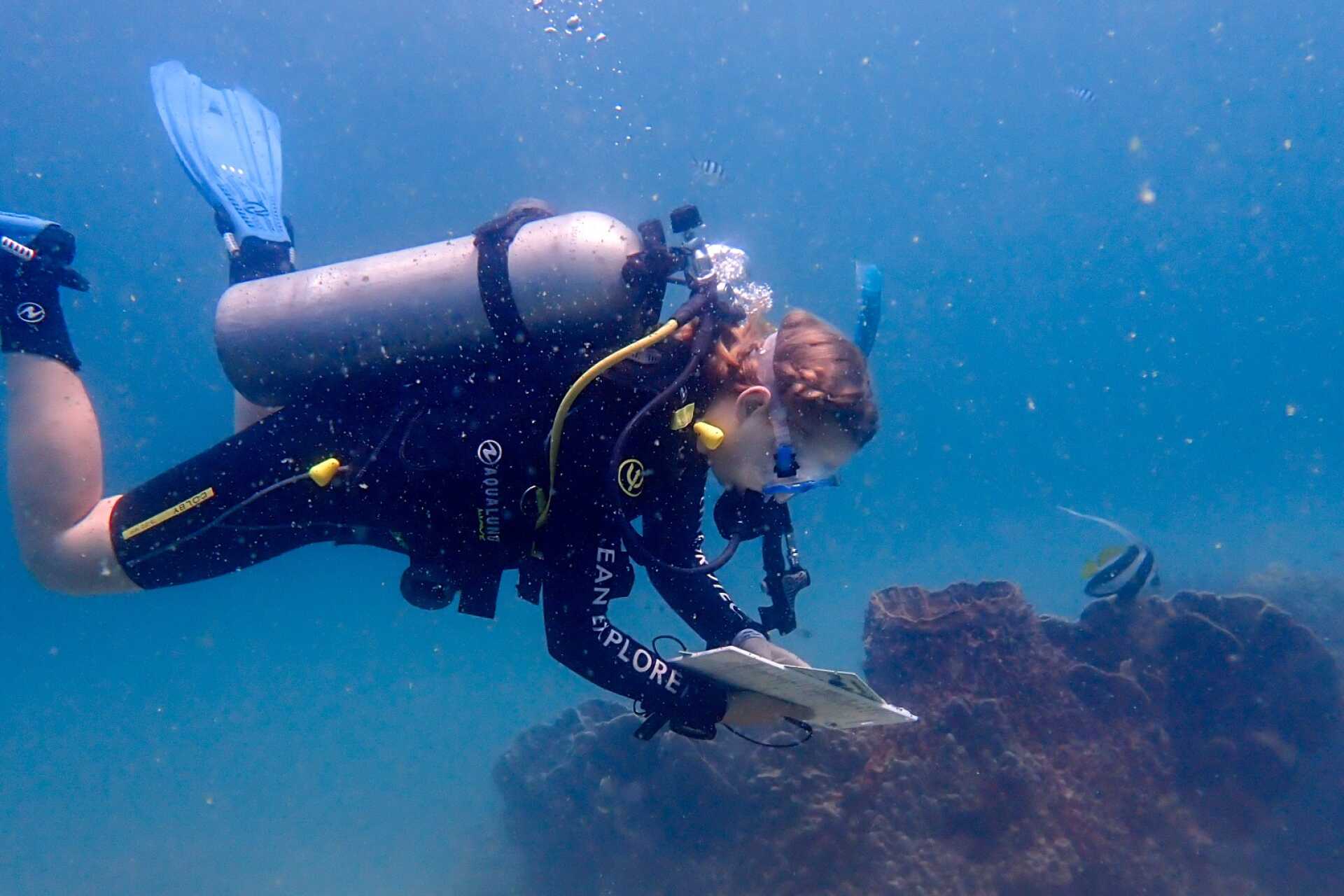
The University will assess your fee status as part of the application process. If you are uncertain about your fee status you may wish to seek advice from UKCISA before applying.
For details of when and how to pay fees and charges, please see our Student Finance Guide.
Fees for undergraduate students are £1,900.
Fees for undergraduate students are £1,430.
Students studying abroad for less than one academic year will pay full fees according to their fee status.
You will require regular access to a desktop computer/laptop with an internet connection to use the University of Kent’s online resources and systems. Please see information about the minimum computer requirements for study.
One day trips that are compulsory to a module are financially funded by the School. Optional or longer trips may require support funding from attendees.
Find out more about accommodation and living costs, plus general additional costs that you may pay when studying at Kent.
Kent offers generous financial support schemes to assist eligible undergraduate students during their studies. See our funding page for more details.

We have a range of subject-specific awards and scholarships for academic, sporting and musical achievement.
We welcome applications from students all around the world with a wide range of international qualifications.

Student Life

Powered by progress
Kent has climbed 12 places to reach the top 40 in The Times Good University Guide 2025.
Kent Sport
Kent has risen 11 places in THE’s REF 2021 ranking, confirming us as a leading research university.

An unmissable part of your student experience.